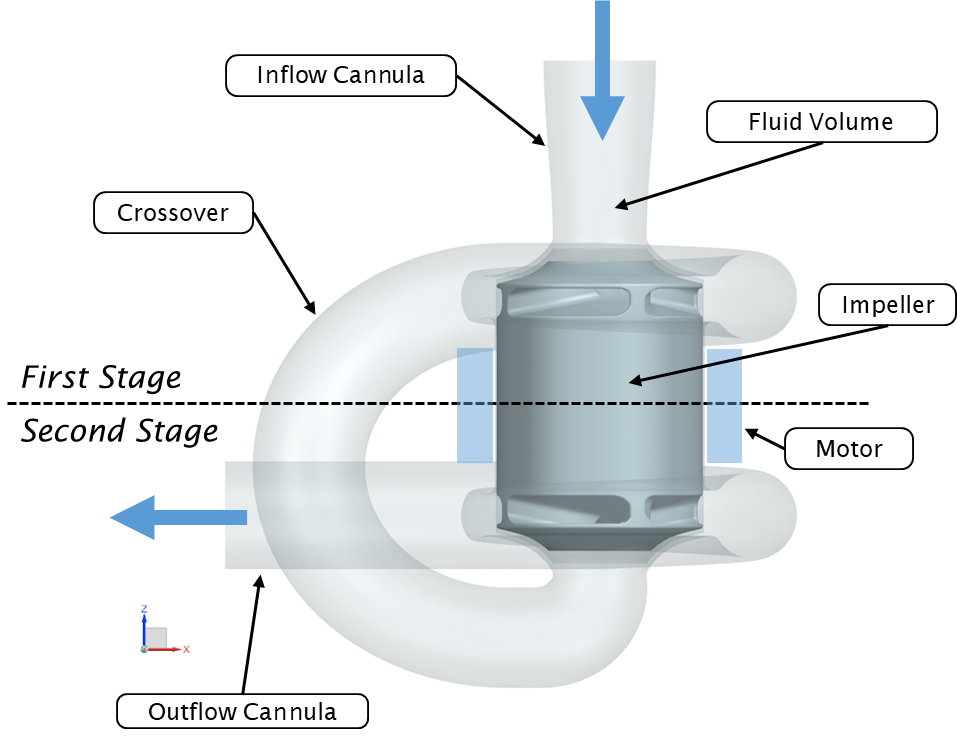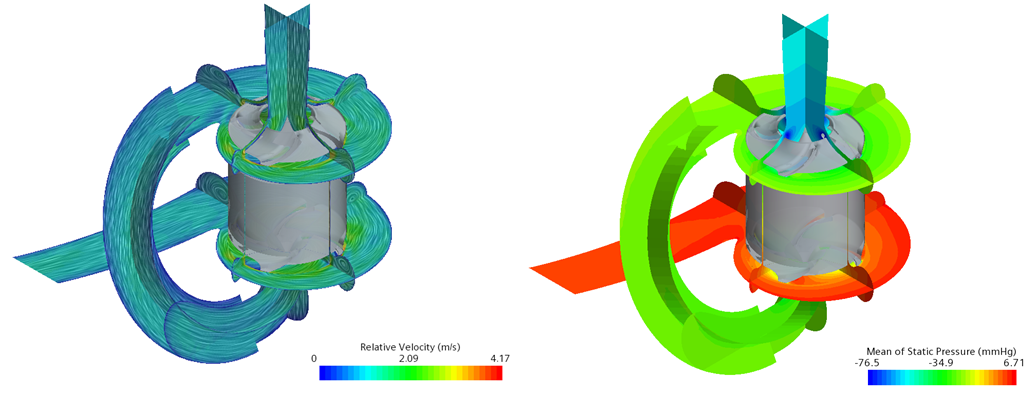Heart failure is a major cause of death in western countries, and respective treatment is increasingly challenged by the shortage of donor organs. Accordingly, contemporary mechanical circulatory support devices have been developed to promote survival and improve the quality of life for many heart failure patients. State-of-the-art implantable devices are designed to address the adult heart failure population with typical mean flow rates of 4-5L/min. However, the application of these devices in pediatric low-flow conditions of 1-2.5L/min comes with the risk of increased blood trauma and occurrence of adverse events. To date, the requirements of small size and excellent hemocompatibility pose a distinct challenge for the development of pediatric ventricular assist devices.
Research Group Leader
ap. Prof. Marcus Granegger, PhD
Post-Doc Research Associates
Dr.-Ing. Bente Thamsen
PhD-Candidates
Sarah Linnemeier, MSc
Krishnaraj Narayanaswamy, MSc
The aim of this project is to develop a miniaturized rotary blood pump that provides reliable and effective support for pediatric patients with left ventricular failure. This innovative blood pump will be small enough to be implanted in the body and designed to meet the challenging requirements of low flow conditions.
Our team has developed a new pediatric left ventricular assist device that combines a multistage pump concept with a hydrodynamic journal bearing. The pump features two pump stages and a fully levitated impeller as a single rotating part (Figure 1). This enables miniaturization while achieving the required pressure head to support systemic circulation. The design was developed using computer aided design. To evaluate the pump performance computational fluid dynamics was used. Further in vitro experiments are planned to validate the preliminary results.
Initial numerical flow simulations have yielded promising results to address the requirements of a low flow pump to support failing left ventricles of pediatric patients. The pump generates the needed pressure head to support the systemic circulation at a low flow rate of 1.5L/min, with an efficiency comparable to other implantable blood pumps.
The new miniaturized pump design caters to the unfulfilled medical need for smaller pediatric patients. It has the potential to enhance the outcome not only for small pediatric patients but also for patients with a small body surface area.
This project is part of the Optiflow 3D project, which is funded by the FFG (FO999891239). The project will run from April 2021 to March 2024, spanning a total of 36 months. The project brings together various partners from academia and industry:
- Profactor GmbH
- Medical University of Vienna, Center for Medical Physics and Biomedical Engineering
- Lithoz GmbH
- bionic surface technologies GmbH
- UpNano GmbH
- Austrian Institute of Technology GmbH
Cooperation partners
- Medical University of Graz (Prof. Priv.-Doz. Dr. Daniel Zimpfer, MBA)
- University of Innsbruck (Ass. Prof. Spasoje Miric)
- Vienna University of Technology (Ass. Prof. Bernhard Semlitsch)
- ETH Zurich (Prof. Johann Walter Kolar, Rosario Giuffrida)


